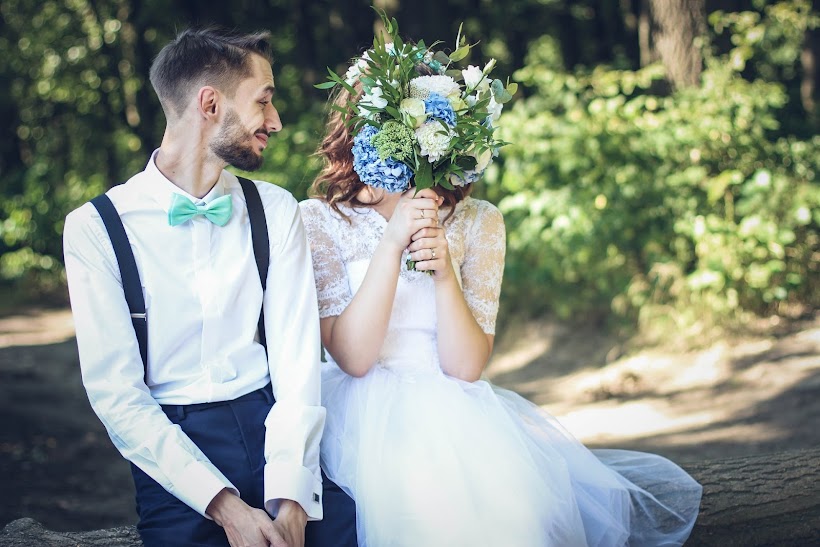Wedded bliss. It's a wonderful thing. Not to mention that fact that you now have a mega-easy way of describing your 'special person' to the world.
'My husband'.
'My wife'.
So simple. So adorable.
Forget the travails of 'my partner in life' and 'my significant other'. Once you've signed on the dotted line, you have a beautifully brief alternative.
"My husband and I think..."
"My wife and I enjoy eating vegetables on a Sunday..."
It's like the verbal version of minimalism.
What could be more straightforward?
Unfortunately, human beings - contrary creatures that we often are - prefer to 'add back' a few unecessary complications.
Hence the rather unflattering words some people use to describe their wife, especially to their friends:
Ball and chain. (A heavy metal ball and chain used to be attached to the legs of prisoners, to stop them running away. So the phrase describes someone who keeps you in jail - lovely.)
Trouble and strife. (Cockney rhyming slang, of course. 'Strife' is a violent or angry disagreement.)
'Er indoors. (Informal and now somewhat dated way of referring to 'her indoors', ie the person who is usually at home, rather than going out to work. In recent years, the equivalent 'im indoors' has gained some popularity.)
The boss. (Another 'prison-type' term, used to give excuses for not going out on the town. For example: "Go nightclubbing? Sorry, the boss says I need to stay at home and do the washing up.")
But before you start thinking that alternative terms for your legal partner are all doom and gloom, please note that there are also a number of touching - albeit cutesy - variations you can use between yourselves.
Step forward:
Hubby
Wifey
Hublet
Wiflet
Awwww...
'Tying the knot' has never seemed more sweet and appealing.












































